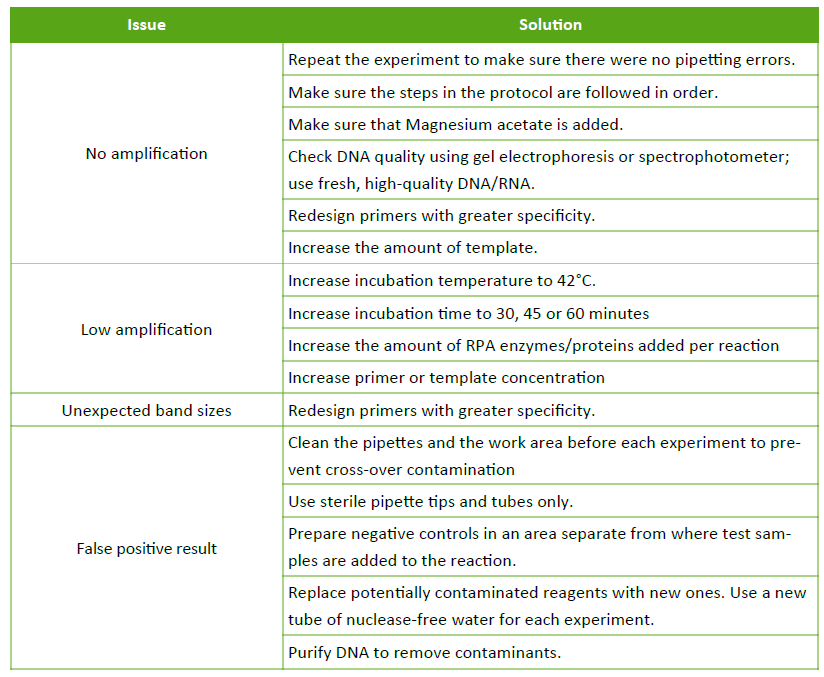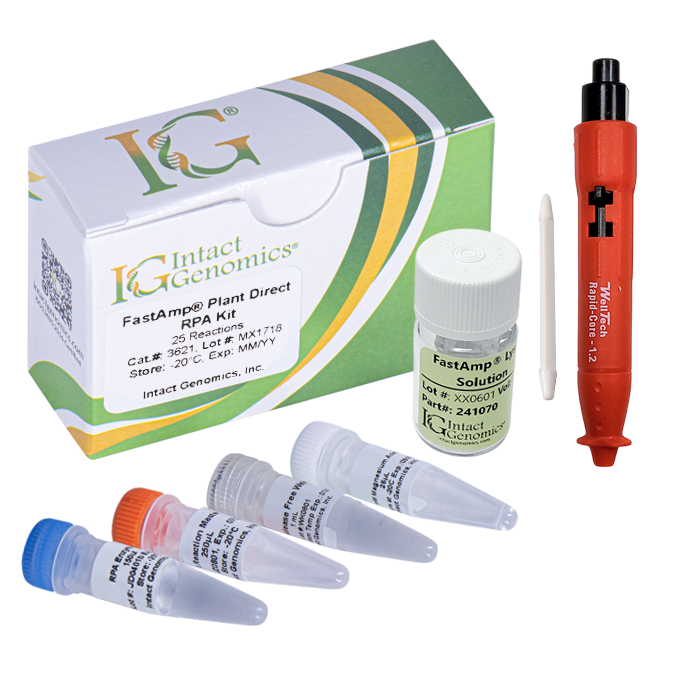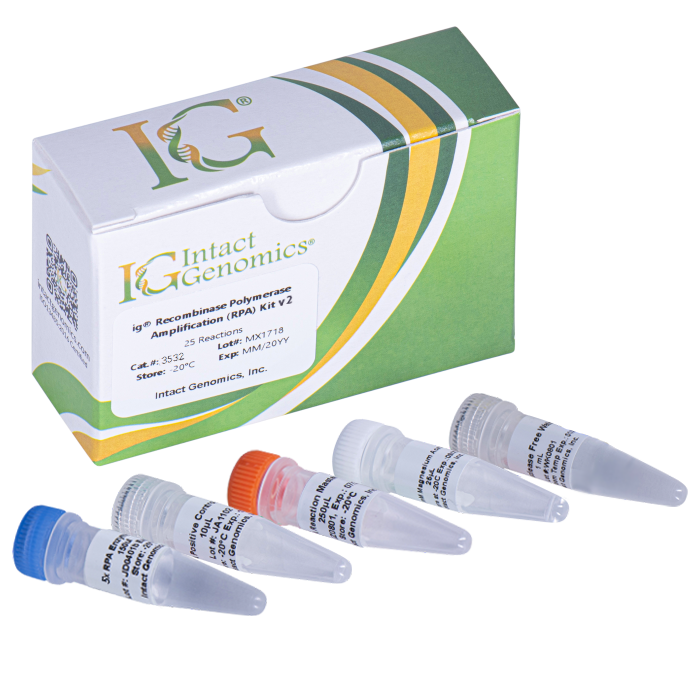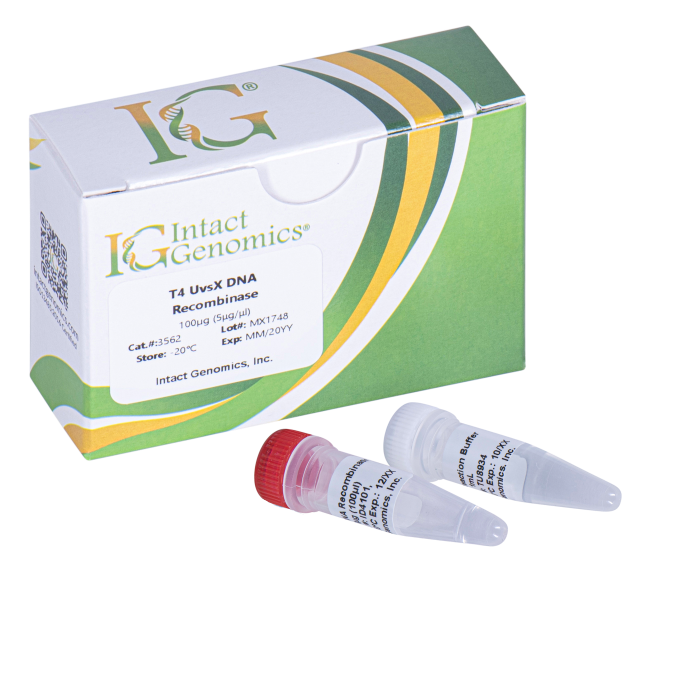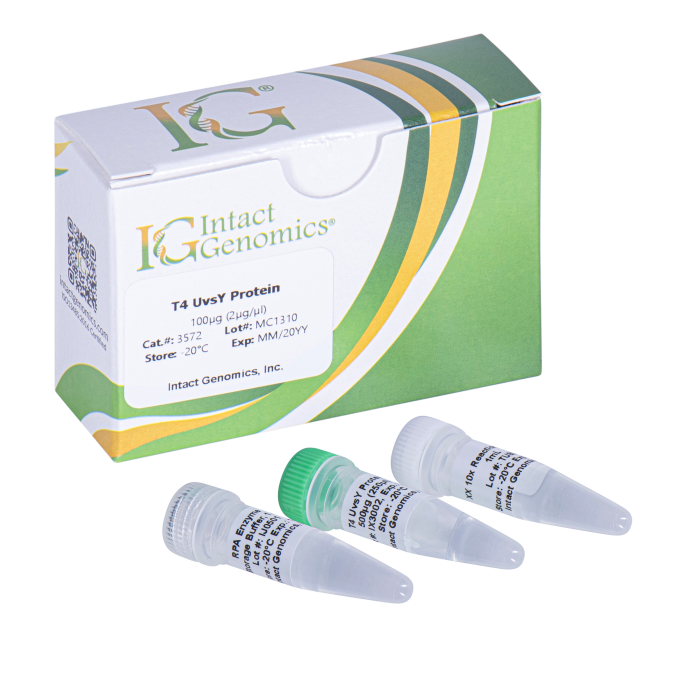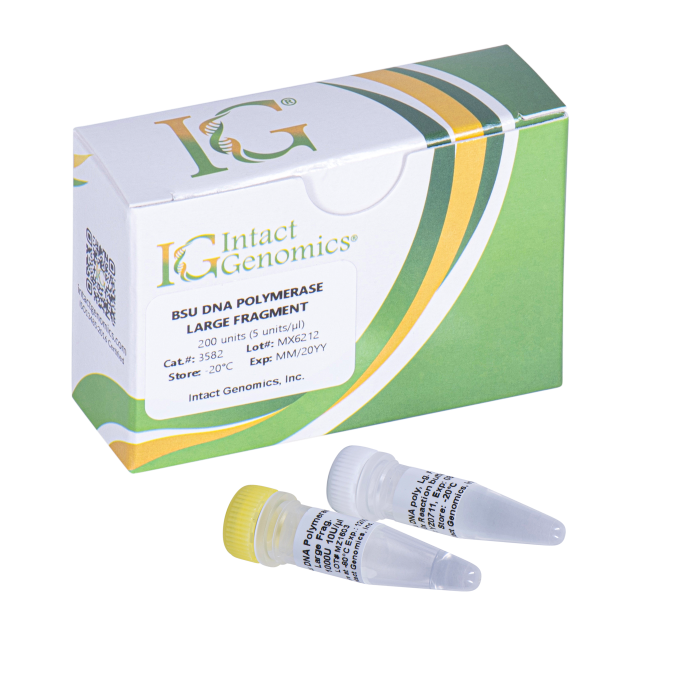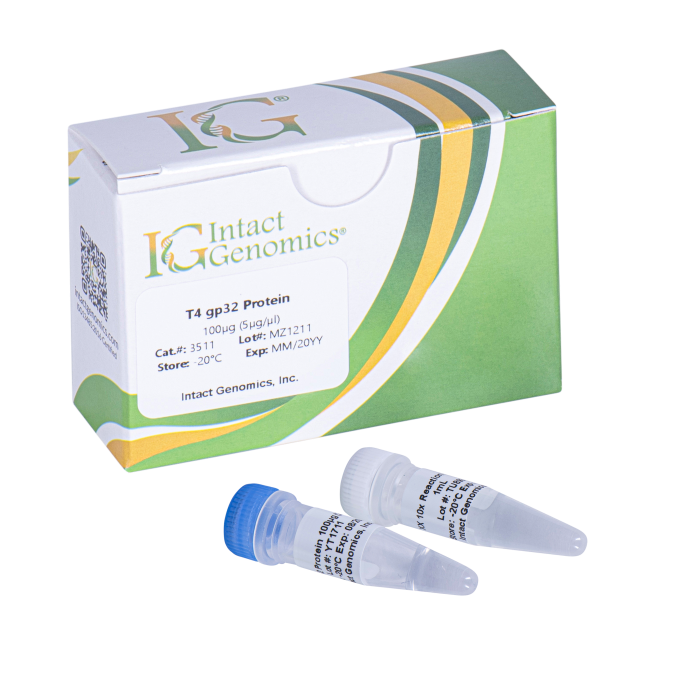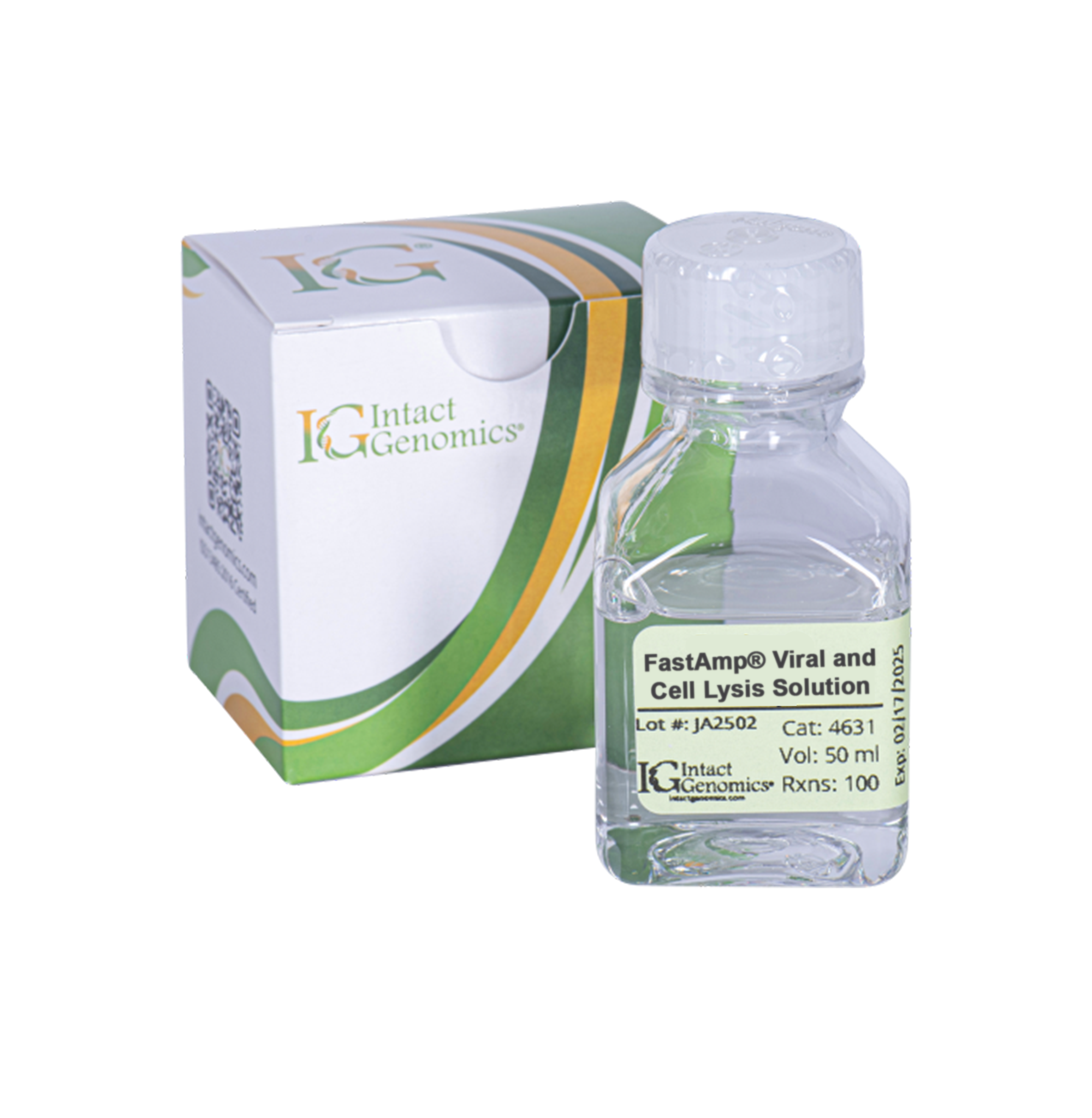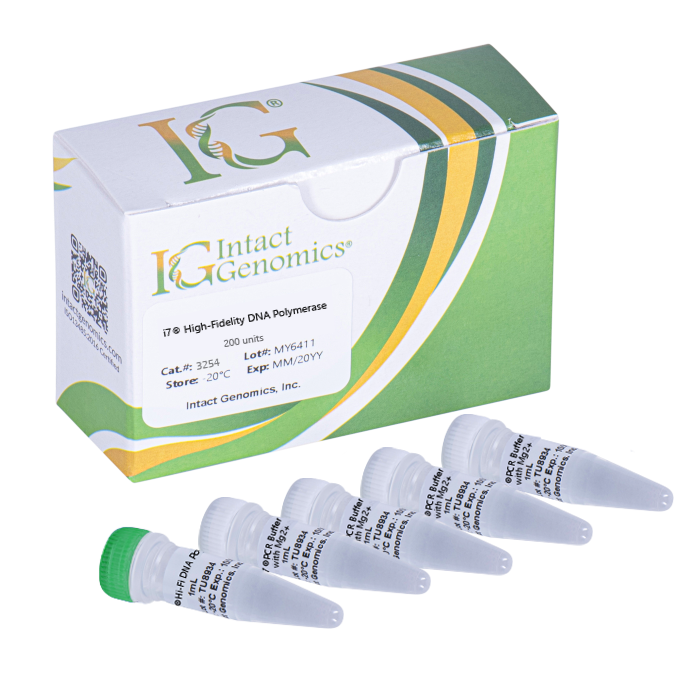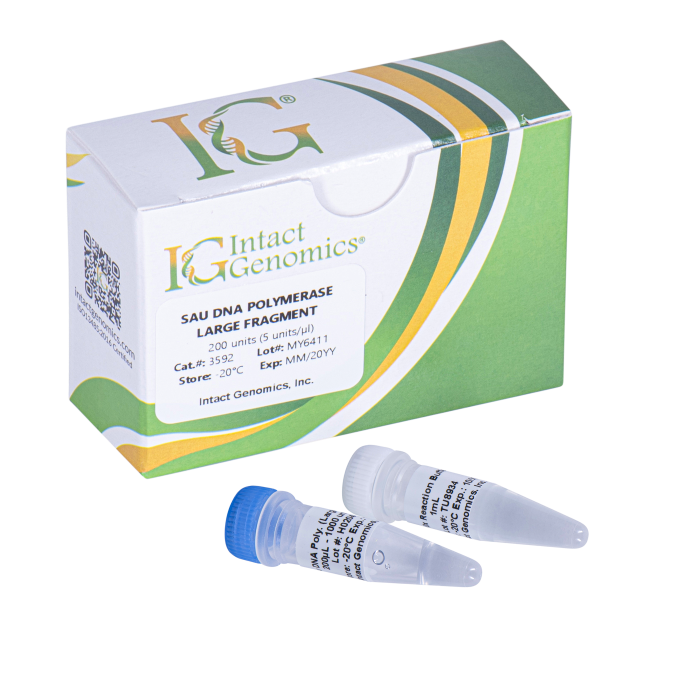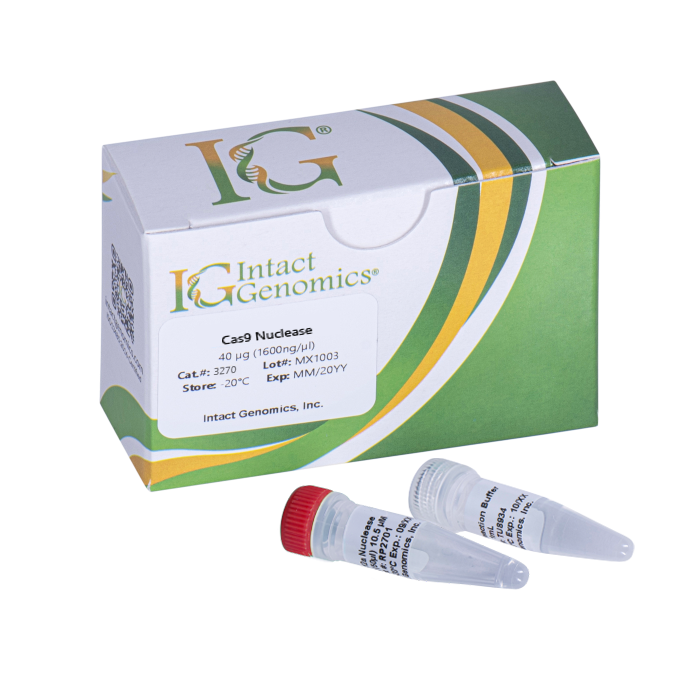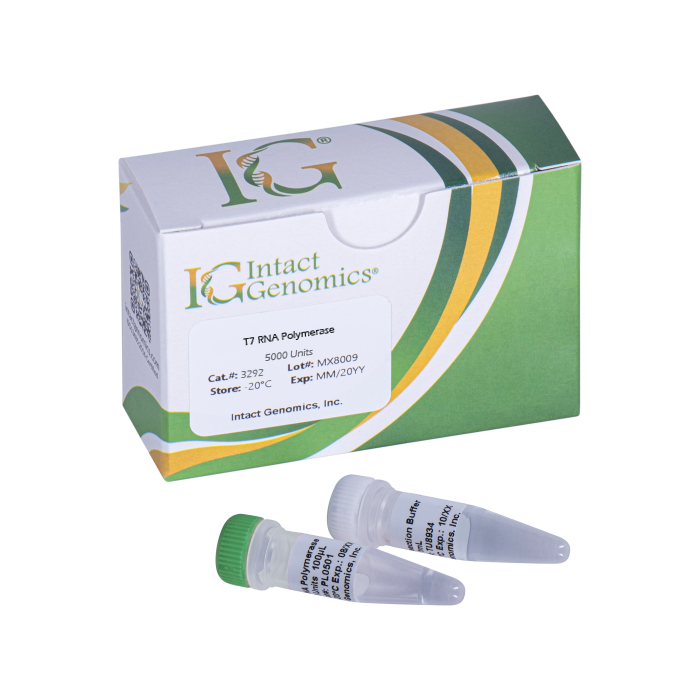Intact Genomics FastAmp® Plant Direct RPA kit offers a fast, robust method for amplifying DNA fragments from plant tissues at a single and constant temperature (37°C) using RPA technology. The key highlights of FastAmp® Plant Direct RPA Solution include its simplicity, speed, and reliability. By eliminating the need for DNA extraction, researchers can streamline their workflows, with tissue lysis and genomic DNA ready for RPA in just 3 minutes.
FastAmp® Plant Direct RPA kit
Price range: $285.00 through $2,255.00
Description
Description:
FastAmp® Plant Direct RPA Solution represents a breakthrough in DNA analysis, offering researchers an advanced solution for rapid plant cell lysis and DNA separation without the need for DNA extraction steps. Engineered with very low toxic chemicals, this solution enables direct DNA amplification from various tissues, saving substantial time and resources. It is compatibility compatible with Isothermal Recombinase Polymerase Amplification (RPA) assays showcases its versatility, making it an indispensable tool in molecular diagnostics and agricultural research applications.
FastAmp® Plant Direct RPA Solution is designed for easy integration into various experimental setups, supporting single tube multiplexing in formats such as single tubes, tube strips, and multi-well plates. Its user-friendly design reduces hands-on time and minimizes the need for expensive bead or spin column-based extraction methods, resulting in significant time and cost savings.
Complementing this solution, the Intact Genomics FastAmp® Plant Direct RPA kit offers a robust method for amplifying DNA fragments from plant tissues at a single and constant temperature (37°C) using a recombinase (e.g. UvsX), primers, a single-stranded DNA binding protein (SSB), and a strand displacing DNA polymerase. The optimization for Isothermal Recombinase Polymerase Amplification (RPA) assay further enhances its utility in genotyping, transgene detection, knockout analysis, and DNA virus diagnostics, providing researchers with a comprehensive solution for diverse experimental needs.
Applications and Benefits:
- Streamlined Workflow: By bypassing traditional DNA extraction steps, researchers save time and resources, enabling faster DNA analysis and accelerating research progress.
- Enhanced Safety: Low toxicity to humans/environment, ensuring user safety while maintaining robust DNA lysis and amplification capabilities.
- Versatile Compatibility: Compatible with Isothermal Recombinase Polymerase Amplification (RPA) assays, offering researchers flexibility in experimental design and application.
- Consistent Results: Provides reliable and reproducible results across various sample types, ensuring confidence in experimental outcomes and data integrity.
- Cost Efficiency: Minimizes the need for expensive bead or spin column-based extraction methods, reducing overall experimental costs and making molecular diagnostics and research more accessible.
Kit Includes:
- FastAmp® Plant Direct RPA Solution
- IG® RPA Enzyme Mixture
- IG® RPA Reaction Master Mix
- Magnesium Acetate (MgOAc)
- Nuclease-free Water
- Micro Pestle
- Leaf Puncher, 1.2 mm
Storage Temperature:
FastAmp® Plant Direct RPA Solution: Room Temperature
IG® RPA Enzyme Mixture: -20⁰C
IG® RPA Reaction Master Mix: -20⁰C
Magnesium Acetate (MgOAc): -20⁰C
Nuclease-free Water: -20⁰C
Plant Leaf Sampling Procedure and RPA Amplification:
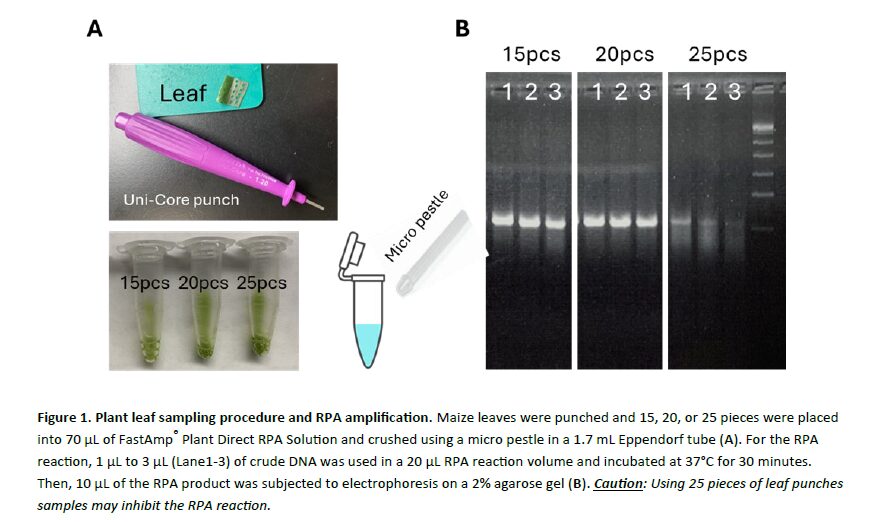
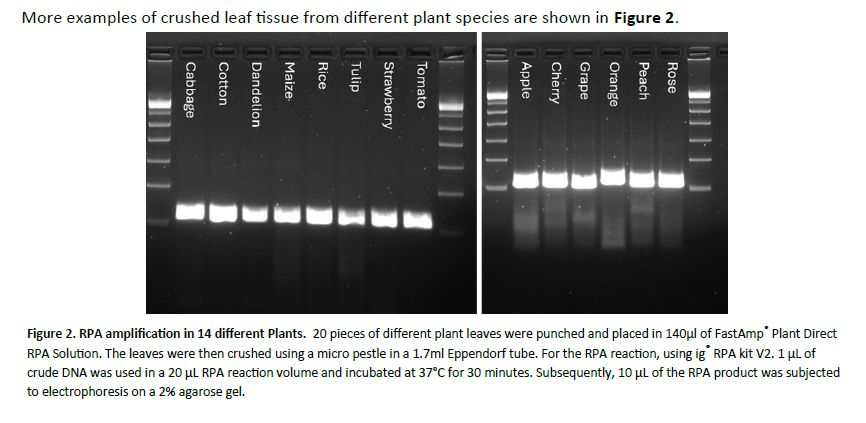
Quality Control:
- All component proteins of the Enzyme Mixture are free from detectable nuclease activities.
- RPA activity of each lot is validated to be consistent with prior IG® lots.
References:
- Cromie GA, Connelly JC, Leach DR (2001) Recombination at double-strand breaks and DNA ends: conserved mechanisms from phage to humans. Mol Cell 8: 1163–1174
- Michel B, Grompone G, Flores MJ, Bidnenko V (2004) Multiple pathways process stalled replication forks. Proc Natl Acad Sci U S A 101: 12783–12788
- Liu J, Ehmsen KT, Heyer WD, Morrical SW (2011) Presynaptic filament dynamics in homologous recombination and DNA repair. Crit Rev Biochem Mol Biol 46: 240–270
Related Products:
- ig® Recombinase Polymerase Amplification Version 2 (ig® RPA V2 Kit ) Kit (Cat.# 3533, 3534)
- FastAmp® qRPA SYBR kit (Cat.# 3612, 3614)
- T4 UvsX Recombinase (Cat.# 3562) , Glycerol-free T4 UvsX DNA Recombinase (Cat.# 3562GF)
- T4 gp32 Protein (Cat.# 3515), Glycerol-free T4 gp32 Protein (Cat.# 3513GF)
- T4 UvsY Protein (Cat.# 3572), Glycerol-free T4 UvsY Protein (Cat.# 3572GF)
- Bsu DNA Polymerase (Cat.# 3585), Glycerol-free Bsu (Cat.# 3585GF)
- Exonuclease IV (Nfo) (Cat.# 3425)
- Exonuclease III (Cat.# 3415)
3621 3623 3625
Additional information
| Reactions | 25 Reactions, 100 Reactions, 500 Reactions |
|---|
Recombinase Polymerase Amplification Technology:
Recombinase Polymerase Amplification amplifies DNA at a 37 – 42°C using a recombinase (e.g. UvsX), primers, a single-stranded DNA binding protein (SSB), and a strand displacing DNA polymerase. T4 UvsX is used in combination with its accessory protein, UvsY. The recombinase interacts with the primers to form nucleoprotein filament. This complex can bind with homologous double-stranded DNA through a strand exchange1-3. After the exchange, a single-stranded binding protein, T4 gp32, stabilizes the displaced strand. Finally, Bsu/Sau DNA polymerase extends the DNA from the primers, creating a new complete copy of the template, and amplification can continue like in Polymerase Chain Reaction (PCR).
Schematic of Recombinase Polymerase Amplification (RPA)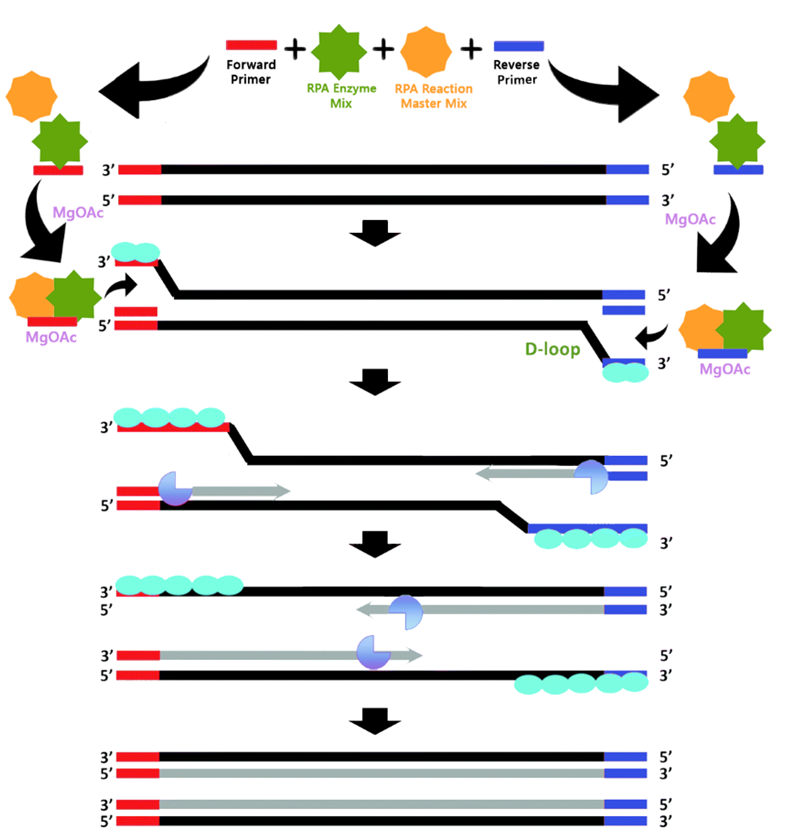 Recombinase Polymerase Amplification (RPA) Technology:
Recombinase Polymerase Amplification (RPA) Technology:
New improved IG® Recombinase Polymerase Amplification (RPA) Kit provides a mixture of the necessary enzymes to simplify and quicken the setup for your RPA reaction at a single and constant temperature (25 – 42°C).
Schematic of IG RPA Kits
Applications and Benefits:
- Highly selective and sensitive isothermal amplification technique.
- Alternative to PCR. No thermocycler or other heavy equipment needed.
- Speed and sensitivity. Excellent for rapid point-of-care and on-site testing.
- No DNA pretreatment required.
- Flexible endpoint detection compatibility (e.g. lateral flow, real-time fluorescence).
Challenges:
Recombinase Polymerase Amplification (RPA) is a popular isothermal amplification technique used in molecular diagnostics. However, like any new technology, it faces certain challenges. Intact Genomics has been working in the RPA field for many years and our scientists have technical expertise to support the scientists and their research with this promising technology. Contact us for tech support and collaboration opportunities. We are committed to continuous innovation and optimization and we are likely to address many of these issues in our studies.
Technical Support:
Intact Genomics is committed to supporting the worldwide scientific research community by supplying the highest quality reagents. Each new lot of our products is tested to ensure it meets the quality standards and specifications designated for the product.
Please follow the instructions carefully and contact us if additional assistance is needed. We appreciate your business and your feedback regarding the performance of our products in your applications.
Sample Preparation:
- Place the leaf puncher* in a perpendicular position over the expanded leaf and rotate it. Put 15 to 25 pieces of punched leaf tissues into 100µl of FastAmp® Plant Direct RPA Solution in a 1.7ml Eppendorf tube.
- Completely crush the leaf tissues using a micro pestle*. The crude DNA (the supernatant of crushed leaf tissue mix) can be used directly as the template for an RPA reaction.
* You may need to purchase more Micro Pestles and Leaf Punchers when work with a lot of samples.
RPA Reaction Protocol:
- Thaw IG® RPA Enzyme Mixture, Reaction Master Mix, Nuclease-free Water and DNA Primers.
- Due to the viscosity of the Reaction Master Mix, it is recommended to mix the DNA primers and RPA Enzyme Mixture on ice first. Then, add the template and RPA Reaction Master Mix and mix by pipetting 10 times.
- Prepare a reaction mix according to the following table:
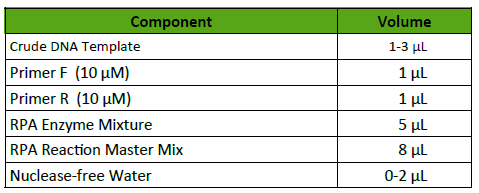
- To initiate the reaction, add 1 µL of Reaction Starter MgOAc per reaction, mix thoroughly, and pulse spin the reaction tube briefly. RPA reactions start as soon as MgOAc is added.
- Incubate the tube at 37°C for 20 minutes.
- Purify the DNA via ethanol precipitation (or the user’s preferred method). Analyze the DNA by gel electrophoresis on a 2% agarose gel.
Cautions and Recommendations:
- Prevent Samples Cross-Contamination
When reusing the puncher, it is very important to clean the cutting edge properly with 70% ethanol to prevent cross-contamination between samples. Purchase as many Micro Pestles as needed, use one for EACH sample.
- Improve Crude DNA Quality
When crude DNA from crushed leaf tissue does not work in RPA reactions, we suggest to simply include a step of ethanol precipitation of crude DNA (such as add 200 µl of 100% ethanol and 70% ethanol to precipitate and wash the DNA then centrifuge at 13k rpm for 10 min, air dry 5min and resuspend the precipitated DNA in 70 µL of FastAmp® Plant Direct RPA Solution), or the user’s preferred DNA purification method. Analyze the DNA by gel electrophoresis on a 1% agarose gel (or up to 2% agarose gel).
- Amplification Time and Time
Optimal amplification time for an RPA reaction is 20 minutes. For samples with high concentration/copies, amplification time can be shortened to 10–15 minutes.
For samples with low template input (e.g. low concentration or low gene copy number), the amplification time can be increased to 30-60 minutes to increase yield and sensitivity.
RPA reaction amplification temperature can vary from 24°C to 42°C according to users’ needs.
The reaction can also be performed at ambient temperature(~24°C). However, we recommend increasing the incubation time to a minimum of 30 minutes, up to 60 minutes.
Troubleshooting:
